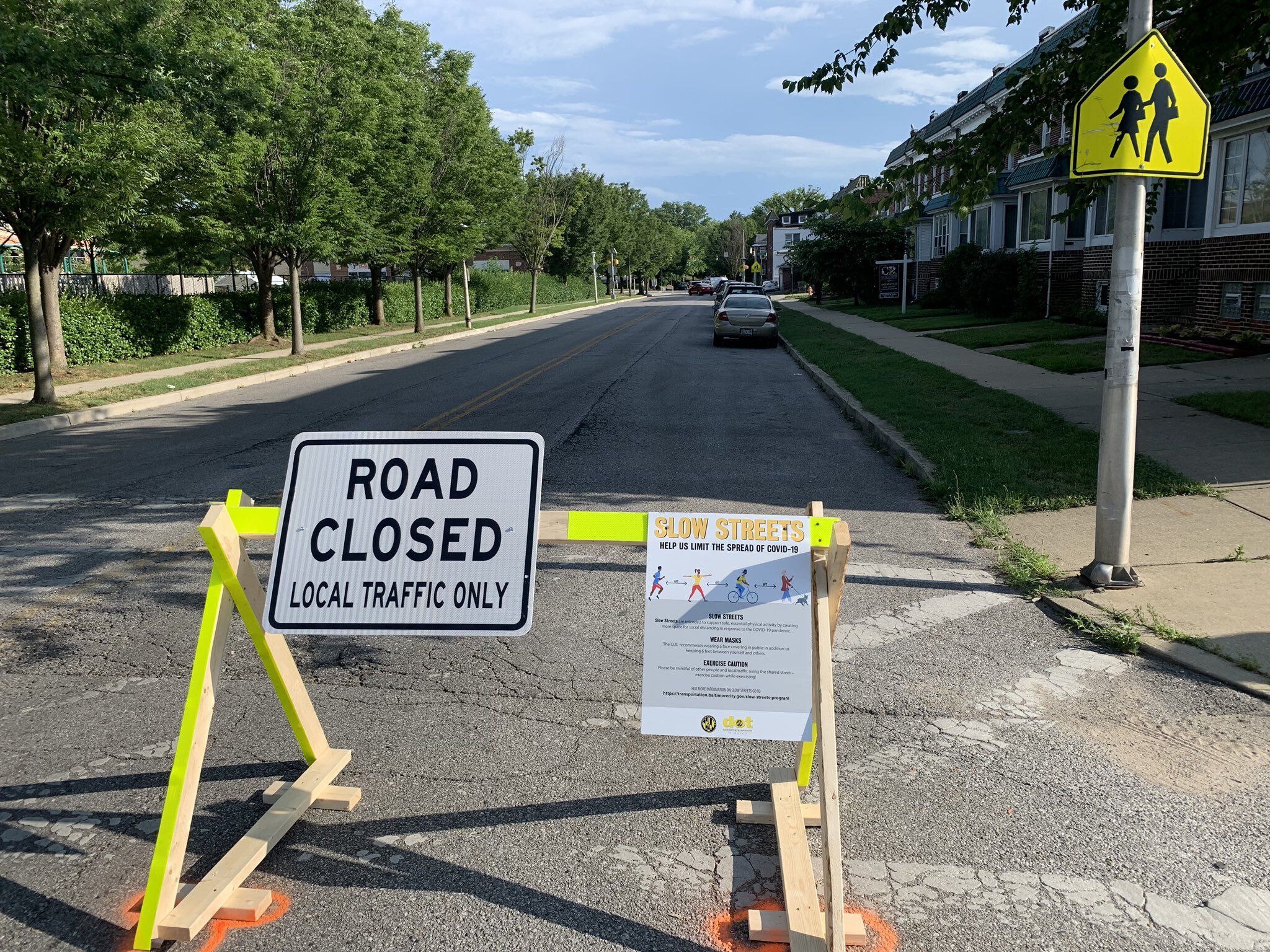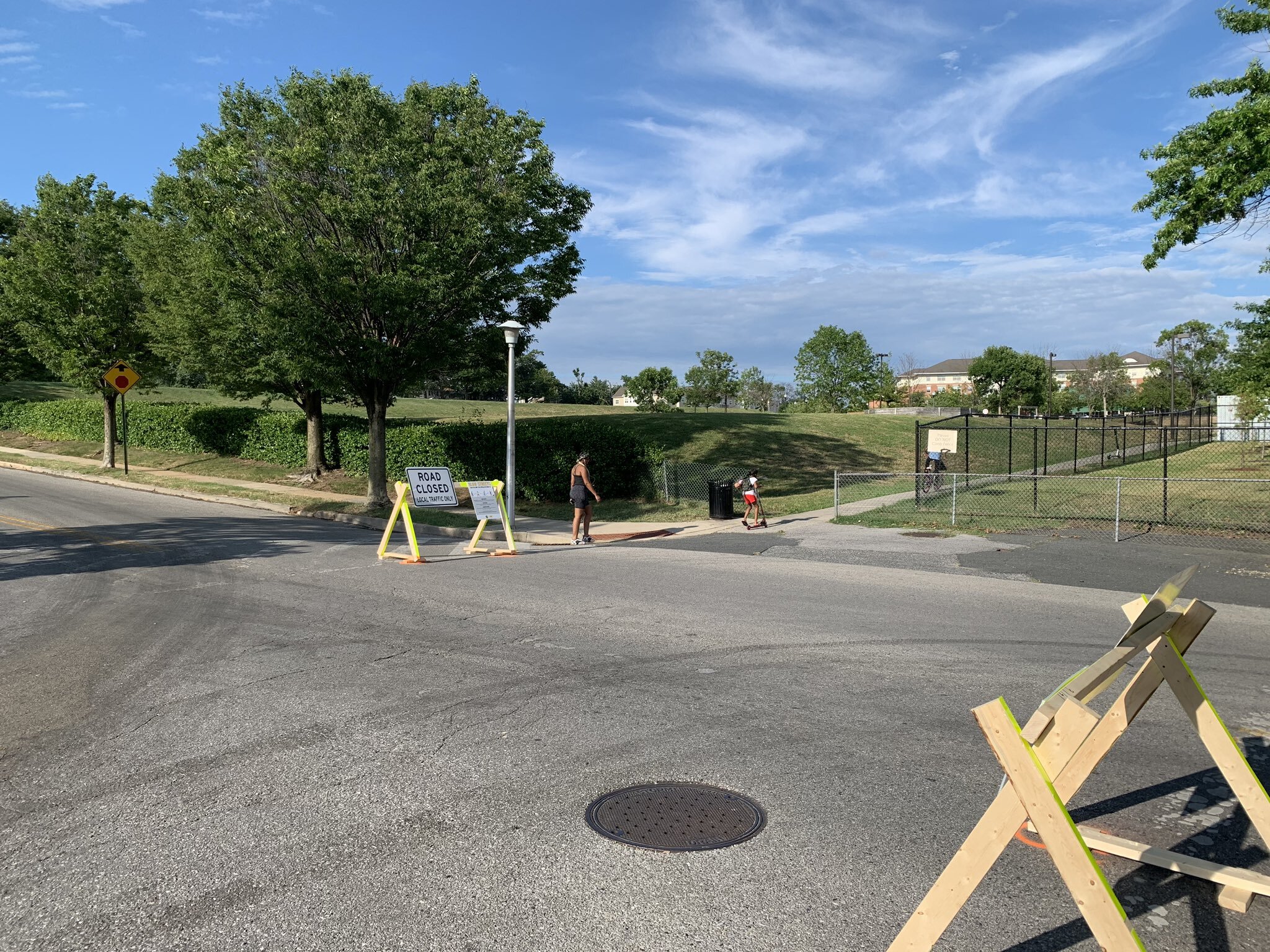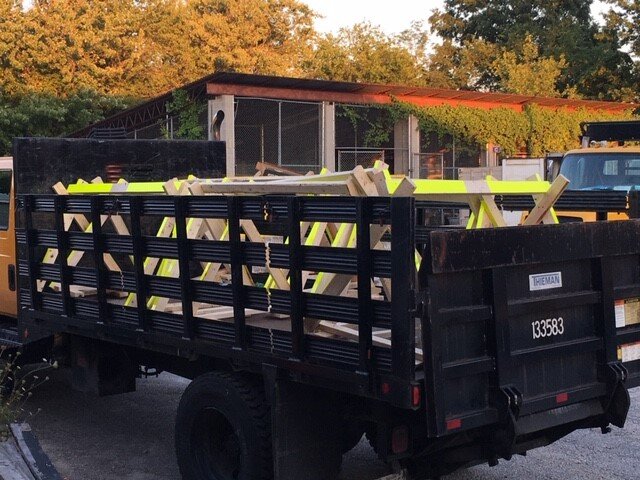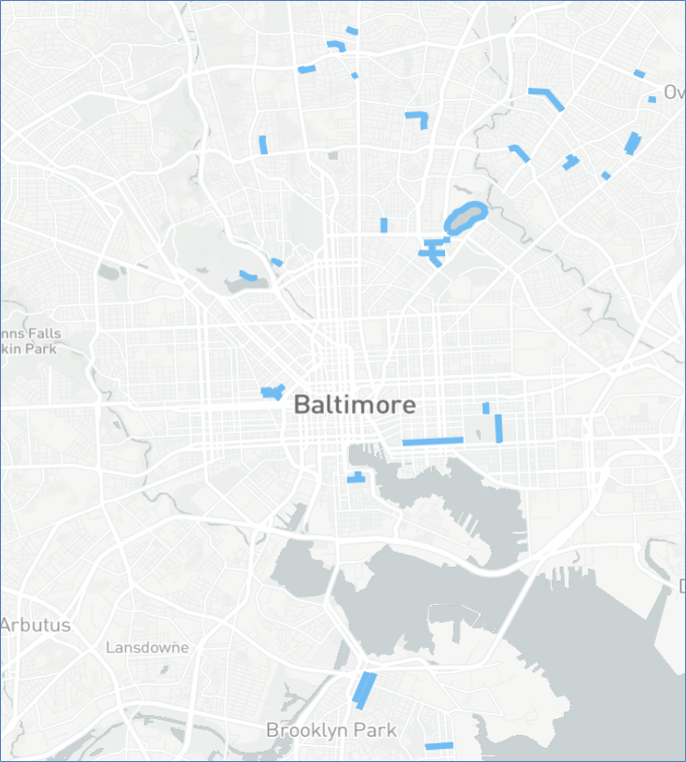In the infrastructure world, it’s called “Maintenance of Traffic.” Really, it’s just a detour. And traditionally, it’s something that’s been awful in Baltimore.
We’ve all experienced it. You’re riding down a protected bike lane, and suddenly there’s construction blocking the lane and nowhere for you to go. Or you’re walking down a sidewalk and suddenly there’s a sign that says “sidewalk closed, use other side” but no crosswalk or curb cut to get you there.
It’s against the law to do this. Baltimore City Department of Transportation has Maintenance of Traffic regulations for contractors that require them to provide a safe detour around construction that closes sidewalks and bike lanes. This usually means closing the adjacent car parking or travel lane to allow pedestrians or bicyclists to use it to go around the construction. But in practice, this rarely happens. Instead, we see dangerous closures like this:
Baltimore City Department of Transportation needs more and better trained inspectors to regularly issue fines for this kind of illegal, dangerous work. And, our city needs to aggressively collect those fines from some of our biggest offenders. The agency is working on a new street cuts manual, and we have advocated for increased fines and more diligent inspections, as well as for the additional resources the agency needs to follow through.
But we also wanted to use this post to show some examples of great maintenance of traffic implementations—exactly the kind of work that contractors should be doing and Baltimore City Department of Transportation should be demanding.
The first is the utility work along the Jones Falls Trail on Falls Road by the Baltimore Streetcar Museum. On prior trail-adjacent projects like the Druid Hill Reservoir tank construction and the Edmondson Avenue bridge replacement, trails were and continue to be closed without detour for years. Contrast that failure with Falls Road, where the street was closed to car traffic and a detour was created to ensure the Jones Falls Trail remains accessible:
Falls Road Maintenance of Traffic
Another recent example is the Harbor Promenade closure for construction by Aliceanna and Wolfe Streets. In the past, the promenade has been closed for construction without adequate detours. At first, this closure looked like it would be a similar situation. But thanks to advocacy from neighbors, community associations, Councilman Zeke Cohen, and Delegate Brooke Lierman, a high quality, physically separated detour was put in place along Aliceanna Street for people biking, walking, and rolling.
Aliceanna Maintenance of Traffic
We’re happy to see great examples of proper, safe detours adjacent to construction being implemented in Baltimore City, as the law requires. And, we will continue to advocate for more resources for Baltimore City Department of Transportation so they can adequately enforce quality work in our roadways.













